Researchers at the University of Toronto’s Faculty of Applied Science & Engineering have created a way to use Google Maps Street View images to assess existing structures. With the aid of machine learning, the images available online can be used to generate data to help determine the age, height and size of existing structures.
The study was published in the Journal of Industrial Ecology.
“This is the first paper we know of where people took a picture that shows you the front of the building and then predicts things that you can’t see in the picture,” says Professor Shoshanna Saxe (CivMin), who led the research team through the Centre for the Sustainable Built Environment.
“My motivations were very focused on embodied carbon research use, but this will be useful for lots of different people. I’ve talked to researchers who are looking at understanding water usage for future planning, or resilience assessments.”
As Street View is prevalent nearly everywhere, the new method offers a cost-effective way to generate significant building data.
“We spent maybe $1,000 on photos to get data that would otherwise cost millions of dollars to obtain,” says Saxe.
“Nobody has millions of dollars to spend on just building dimensions, so this is the difference between being able to work on these problems and not. Having methods that can let us understand neighbourhoods and buildings at scale is really useful,” she says.
The team trained the AI to estimate building attributes based on external images of the structure, achieving 70% accuracy for age prediction and 80% accuracy for area prediction.
“Being able to assess the exteriors allows a sort of educated guess at the interiors and the kinds of uses the occupants put on local infrastructure,” says co-author Alex Olson (MIE MASc 2T0), a senior AI researcher at the Centre for Analytics and Artificial Intelligence Engineering (CARTE) at U of T.
“It gives a strong estimate of the resources used in building, maintaining and operating the buildings.”
Saxe expands, “This is information you can’t get from traditional methods of just looking at maps or plans — you need to see structures. One of the distinctions is we’re predicting what the internal square footage of the building is. And, although obviously that tracks with the size of the outside of the building, it’s actually harder to predict. And you also can’t see how old the building is from the outside.
“If you have experience, you can walk around and say, that building looks about this old to me, this building looks about that old to me and so on. But there’s all kinds of things about it that make it hard, including renovations. The front can be different from the back. And is the frontage brick, glass or is it concrete? Knowing the age of the building is important, as it tells you what materials were used and what embodied carbon there is. And, also, how it performs.”
The ability to see beyond the facades of buildings with AI could help planners better understand the resource needs of cities and prioritize future infrastructure in areas of greatest need.
“You want to understand where there’s underused resources or infrastructure in your city,” says Olson.
“It sounds like we should already have the data, but we really don’t. With this, while it doesn’t model the future, it does quite accurately describe what the current situation is and allows us to use the data for planning our resource uses and what we want to do in the future.”
Dimpho Radebe (IndE 1T5, ChemE PhD student) wanted to use her engineering degree to create positive change and impact everyday life. That’s when she found industrial engineering.
The field gave her a framework to consider the human side of engineering, such as systems, processes and psychological perspectives. But as Radebe moved through her undergraduate degree at the University of Toronto and into her career, she often found herself one of the few Black women in the room.
“For many of us who struggle with relating to traditional engineering culture, or just see ourselves differently as engineers, it can feel isolating,” says Radebe, a doctoral student in the Department of Chemical Engineering & Applied Chemistry in the Faculty of Applied Science & Engineering.
Questions about how engineers are trained, how they use their degrees and what defines engineering culture led Radebe back to U of T to pursue a PhD in engineering education.
As part of her studies, Radebe is currently completing the Collaborative Specialization in Engineering Education, an interdisciplinary initiative led by ISTEP, designed for graduate students pursuing research in engineering education. She has first-hand experience putting her research into practice in three undergraduate ISTEP courses — TEP324: Engineering and Social Justice, as an instructor, and TEP448: System Mapping and TEP445: Power of Story, as a teaching assistant.
Her research uses Black feminist autoethnography and critical race counter-storytelling to reflect on key moments in her engineering education and career from 2010 to 2024. She examines equity, diversity and inclusion efforts and explores issues related to the retention of Black women in engineering for educators and employers committed to decolonization and inclusion.
In recognition of her work, Radebe received the Outstanding Graduate Student Poster Award following her presentation Illuminating the Shadows of Engineering Education: A Black Queer Feminist Perspective, at the BRN Research Symposium. The award was made in collaboration by the Black Research Network and the U of T Black Graduate Students’ Association.

According a 2022 report from Engineers Canada, 25.2% of engineering undergraduate students in Canada self-identified as female, while 74.8% identified as male in 2021. A 2023 report from the same organization found that among practicing engineers, 86% identified as male and only 14% as female.
Canada’s narrative of multiculturalism — and the belief that racism isn’t as prevalent here — has led to less attention and research compared to the United States, Radebe says.
“I decided to begin with my own experience, given the limited data available, as a starting point for deeper exploration,” she says. “I wondered if personal insights could highlight the need for more research, especially from a Canadian perspective.”
Her work highlights not only exclusionary practices in engineering culture, but also the need for greater curricular flexibility and deeper discussions about navigating education, the profession and the recognition of various career pathways within it.
“My ultimate hope is that other engineering students who engage with this research feel validated in their own experiences and empowered to chart their own career trajectories,” says Radebe.
A new facility in The Edward S. Rogers Sr. Department of Electrical and Computer Engineering (ECE) offers cutting-edge equipment that will foster collaboration between undergraduates and researchers on long-term projects that explore advanced topics.
The new Keysight Electronics Laboratory was unveiled in a ceremony held Tuesday, April 29. The hands-on educational lab was made possible through a generous in-kind donation of advanced equipment from Keysight Technologies, which serves as the global innovation partner for high-growth industries.
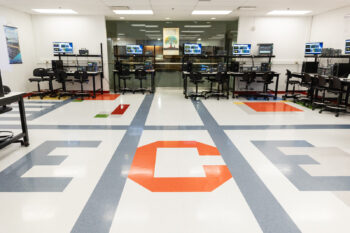
Keysight is known for collaborating with top partners across high-growth industries, including automotive, technology and leading engineering universities. Their solutions empower engineers to accelerate innovation and design and develop groundbreaking technologies with speed and reduced risk.
“As a proud alumna of the University of Toronto’s Electrical Engineering program, I am thrilled that Keysight is supporting the future generation of talented engineers with this donation of advanced instruments,” said Marie Hattar (ECE 9T0), CMO at Keysight Technologies.
“At Keysight, we are deeply committed to fostering innovation and believe this collaboration will empower U of T Engineering students to accelerate their learning, make groundbreaking discoveries and ultimately shape the future of technology.”
This versatile mixed hardware lab will be used for undergraduate courses at both the introductory and advanced levels. The new electrical engineering lab will feature Keysight-provided equipment such as:
- InfiniVision 1000 X-Series Oscilloscope with WaveGen
- Waveform generator
- Digital Multimeter
- Test Sequencing and Control Module
- True RMS 6000 count handheld DMM
As one of Canada’s largest electrical and computer engineering departments, ECE at U of T Engineering has the human and material resources to offer an exceptional research experience opportunity for students. Among ECE’s existing teaching labs are an innovative photonics lab, cutting-edge microwave lab and industry-grade energy systems lab.
The new Keysight Technologies equipment will also mean that individuals can be trained on specific hardware, opening up the possibility for external training and workshops. The addition of the new Keysight Electronics Laboratory will provide ECE students with the necessary resources to ensure this program remains competitive.
“I noticed that there was a gap in the practical education opportunities available; I wanted to ensure that we had an advanced facility for undergraduate students, providing the possibility of working on project-based labs, which could expand across many disciplines here at ECE, like analog and digital electronics, control systems, signal processing, embedded systems and communication systems,” says Afshin Poraria, Director of ECE Teaching Labs.
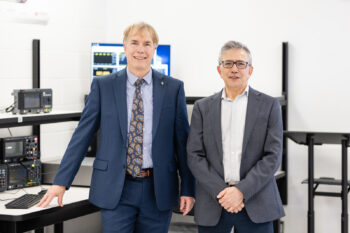
This unveiling of the Keysight Electronics Laboratory marks a milestone in the partnership between ECE at U of T Engineering and Keysight Technologies. Poraria says that this new concept has the potential to expand the current partnership further and bring in new partnerships as well.
“The partnership between Keysight and ECE at the University of Toronto Engineering reflects the incredible impact we can make when industry and education work together,” says Professor Deepa Kundur, Chair of ECE.
“By providing access to essential tools and hands-on learning experiences, we are opening new doors for our students — opportunities critical to their growth as the next generation of engineers and innovators.”
“This donation marks yet another milestone in our enduring partnership with the University of Toronto Engineering—a relationship that has ranged from cutting-edge research in photonic ICs to support for student clubs,” says Dr. Doug Baney, Corporate Director of Education at Keysight.
“By supplying modern industrial test equipment to the electronic teaching labs, we’re helping prepare students with the practical skills and experience they need to excel in their engineering careers.”
See all the photos from the unveiling event on our Flickr.
Professor Rachel Gregor joined the Department of Chemical Engineering & Applied Chemistry (ChemE) in March 2025. She leads the MicroChemEco Lab, which sits at the intersection of chemistry, microbiology and environmental science. Her research focuses on the vast chemical diversity of microbes and their role in shaping ecosystems and global biogeochemical cycles.
Originally from New York City, Gregor moved to Israel after high school and completed both her undergraduate and graduate degrees at Ben-Gurion University of the Negev. She majored in chemistry with a minor in literature, drawn equally to science and the humanities before ultimately choosing the path of chemistry. She completed her PhD in Professor Michael Meijler’s lab, where she explored chemical signaling in bacterial pathogens.
A pivotal moment in her research journey came during a two-month stint at the University of California San Diego in 2015, where she discovered a fascination with microbiome research and metabolomics. Back at Ben-Gurion, she collaborated on a unique project analyzing gut microbiomes from over 100 zoo animals. For her postdoctoral work, Gregor joined Professor Otto Cordero’s lab at MIT to study marine microbial communities and their role in the ocean’s carbon cycle.
We spoke with Gregor to learn more about her journey and what she’s most excited about in her new role.
What drew you to U of T?
At U of T, I feel like I can have my cake and eat it too — it’s a large, international institution with countless opportunities, but at the same time, I’ve found an incredibly supportive and collaborative community in the department and especially in BioZone. The communal nature of BioZone is truly special, and I’m still learning new things about U of T every day.
How did your interest in microbes take root?
If you love chemistry, you should love microbes — they’re brilliant synthetic chemists! I got drawn into the microbial world during my PhD, and my time at UC San Diego introduced me to marine microbiology. I’ll never forget attending a happy hour at the Scripps Institute of Oceanography — watching researchers come straight out of the ocean in wetsuits as the sun set over the Pacific. I thought, “This is it — this is the kind of scientific life I want.”
What are you hoping to accomplish through your research?
Our lab is trying to understand how the chemical diversity of bacteria influences ecosystems. Using high-throughput metabolomics, we map connections between natural products, microbes and the environment. One of our big-picture goals is to engineer microbial communities for applications in health, sustainability and industry. We’re also aiming to create an ecology-based drug discovery pipeline grounded in microbial interactions.
How does your work fit into the department’s broader research goals?
I see my work building on existing strengths in microbial communities, metabolomics and environmental chemistry. I’m excited to add new angles, especially in marine microbiology and drug discovery, and contribute to our collective goal of a more sustainable future.
What do you hope your work will contribute to global challenges?
I believe microbes hold the key to next-generation sustainable technologies and novel therapeutics. Specifically, I hope to help uncover the chemical drivers of microbially-mediated carbon sequestration in oceans and use ecological principles to guide natural product discovery. There’s so much untapped potential in understanding the chemistry of microbial life.
What’s your teaching philosophy?
I want students to understand how chemistry shapes society and our ecosystem. I’m especially passionate about making biology accessible to non-biologists, and chemistry to non-chemists. The future is interdisciplinary, and that’s how I aim to teach.
How will you bring your research into the classroom?
I’d love to offer undergrads hands-on research experiences. I’m inspired by initiatives like the Tiny Earth Project, which gives students the chance to discover antibiotics from local soil samples. Even if we’re not in the field, there’s a treasure trove of real-world data online — chemical, genomic and otherwise — for students to dive into.
What’s something people might not know about you?
I’ve set a personal goal for my first year in Toronto: to try every vegan restaurant in the city. I’m making progress, but the list is long!
10 U of T Engineering faculty and staff members have been honoured for their outstanding contributions to the faculty with teaching, research and administrative staff awards. These awards recognize exceptional faculty and staff for their citizenship, leadership and innovation in teaching and research.
“I’m glad to have this opportunity to acknowledge the tremendous contributions made by our amazing faculty and staff,” says U of T Engineering Dean Christopher Yip.
“Congratulations to the awardees, and my heartfelt thanks to all our faculty and staff members for their hard work and commitment to the faculty’s teaching and research missions.”
The award recipients are:
ADMINISTRATIVE STAFF AWARDS

Fanny Manousos (MSE) — Agnes Kaneko Citizenship Award
Recognizing a staff member who has served with distinction and made contributions to the faculty’s mission above and beyond their job description over a long period of time.
Manousos joined MSE in 1998, immediately demonstrating remarkable leadership during a major administrative transition. Over the past 27 years, in a series of progressively more senior roles, she has revamped the MSE office, recruited, trained and mentored new staff, and provided outstanding support to four department chairs. Manousos has played a key role in managing and coordinating all administrative and financial portfolios in MSE, juggling duties that might be assigned to several staff members in larger departments. Her exceptional work, as well as her continuous support for all MSE’s faculty, staff, and students, has been instrumental in the department’s success and growth.
Beyond her administrative expertise, Manousos is known for fostering a positive and inclusive work environment. Her approachability, professionalism, and dedication have made her a trusted advisor and mentor to many within the department and beyond. She is always willing to go above and beyond, whether by assisting with complex administrative tasks, resolving challenges efficiently, or ensuring that students and faculty have the resources they need to succeed. Manousos is the keystone of MSE, keeping the department running smoothly for nearly three decades.
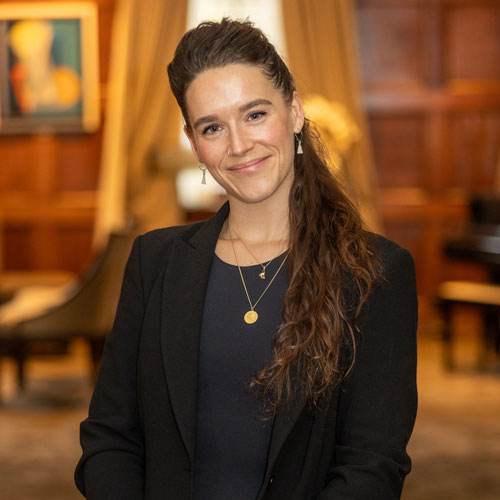
Jennifer Galley (ISTEP) — Harpreet Dhariwal Emerging Leader Award
Recognizing a staff member who leads by example in their dedication to the faculty’s mission and demonstrates potential to assume a more senior leadership role.
Galley joined Troost ILead as a leadership education specialist in 2022. Her role has since expanded to experiential leadership specialist for all ISTEP programs. In this role, she supports co-curricular and curricular leadership education by facilitating classroom lectures, leading professional skills programming, offering one-to-one teamwork advising, and serving as an expert resource to faculty and staff. This work requires a considerable amount of relationship building and collaboration, and Galley’s commitment and leadership have fostered trust with students and colleagues alike. As an example, she was able to achieve buy-in and collaborate with two departments who had previously been hesitant about the program.
Galley chaired the steering committee for ISTEP’s flagship co-curricular event, the Clarke Prize Environmental Design Challenge, resulting in an extremely successful day with more than 160 students participating. Above and beyond her student-facing role, Galley has facilitated multiple workshops for industry partners such as Toronto Hydro, Professional Engineers Ontario, and Vale. For Vale, she developed and delivered two modules with instructional videos, which will be a key part of ISTEP’s industry programming going forward.
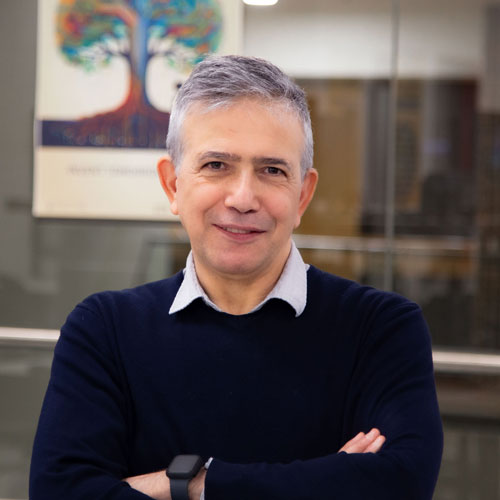
Afshin Poraria (ECE) — Catherine Gagne Sustained Excellence in Leadership Award
Recognizing a staff member who has demonstrated leadership in supporting the faculty’s mission over a sustained period.
Poraria joined ECE in 1996 as a senior research associate, then became manager of the Energy Systems Lab in 2015. In that role, he established the lab as a showcase teaching and research facility. Most notably, Poraria was instrumental in establishing the DC Microgrid, which made the lab energy self-sufficient and enabled it to house some of the most sophisticated teaching and research equipment in North America. He received the Faculty’s Innovation Award for his work on the DC Microgrid in 2020.
In 2021, Poraria was appointed director, teaching laboratories for ECE, leading a team of technical staff to manage eight teaching labs across 12 sites. His leadership in this role has been transformational on many levels, from improving the undergraduate student experience, to providing new opportunities for alumni and donors to engage with ECE research, to fostering a culture of collaboration and teamwork among staff. Poraria has not only improved lab infrastructure but has also worked with faculty and staff to develop new lab courses and summer workshops in hardware and software. Recently, he was instrumental in establishing the Keysight Electronics Laboratory, a state-of-the-art facility designed to support undergraduate students in advanced research.
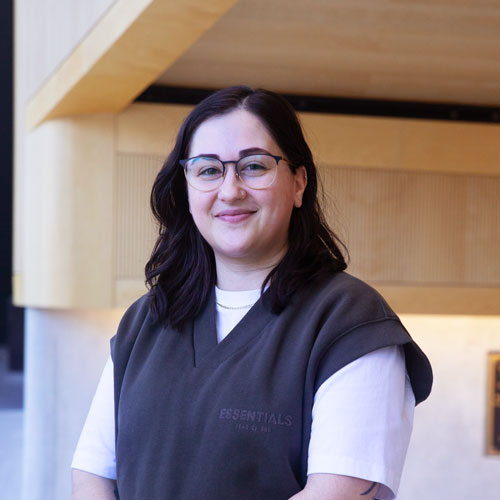
Irma Berardi (EngSci) — Barbara McCann Quality of Student Experience Award for Frontline Staff
Recognizing a staff member who has made significant contributions to the quality of student experience in the faculty through their outstanding frontline service.
Berardi is academic advisor for Year 1 and Year 2 international students in EngSci. In this role, she demonstrates an outstanding commitment to improving the overall experience for students transitioning not only to university but to a new country. Berardi has worked to create an inclusive and welcoming environment for these students, many of whom experience culture shock and language barriers to go along with the regular challenges of university life.
Berardi is an invaluable resource for students and a tireless advocate for their well-being. Whether she is addressing academic difficulties, offering wellness support, or helping students access institutional resources, she goes above and beyond to ensure that every student gets the help they need. She sets up routine advising appointments with at-risk students, offers stress management support and ensures that students are building their toolkit to thrive both academically and personally.
Berardi leads the EngSci GEARS Mentor program, in which upper-year students provide guidance and support to first-year and second-year students, and works to improve the program year over year. Her exceptional student service has significantly improved the challenging transition faced by EngSci’s international students.
RESEARCH AND TEACHING AWARDS

Mohamed Hassan (MIE) — Teaching Assistant Award
Recognizing a teaching assistant (TA) who demonstrates excellence in classroom teaching, working with students, and the development of course materials.
Over the past three years Hassan has been a TA for several MIE core second-year and third-year courses. His technical expertise and profound understanding of the course material have established him as an essential resource for his students and his fellow TAs. His ability to guide and support both his peers and his students, while remaining approachable and receptive to feedback, creates an environment where everyone feels empowered to contribute and ask questions.
Hassan has been remarkable in how he takes ownership of the courses he TAs. He developed a new laboratory curriculum for MIE364, in collaboration with the instructors, which integrated leading-edge software tools. Hassan took the lead in coordinating a large team of TAs from MIE304: Introduction to Quality Control and MIE364: Quality Control and Improvement as they joined forces to deliver the unified curriculum effectively. This coordination was particularly challenging, yet he managed it with great skill, ensuring all TAs were well-prepared and consistent in their teaching approach. Always seeking to improve his teaching skills, Hassan participated in the TA Training Program in 2022 and 2023, and in the Prospective Professors in Training program this past year.
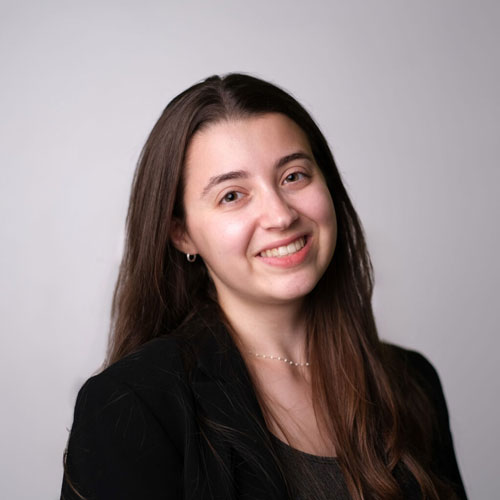
Samantha Unger (BME) — Teaching Assistant Award
Recognizing a teaching assistant (TA) who demonstrates excellence in classroom teaching, working with students, and the development of course materials.
A PhD candidate in BME, Unger has served as a TA for ESC180: Introduction to Computer Programming and ESC190: Computer Algorithms and Data Structures, the introductory programming courses in EngSci, since 2020. Unger combines deep understanding of course concepts, enthusiasm for teaching, commitment to students, and exceptional skill in designing course materials. In both her lab and classroom teaching, she is engaging, clear, and thoughtful in her approach to presentation.
Unger’s teaching philosophy emphasizes confidence building and generating curiosity for the material. Given the wide range of prior knowledge among students in ESC180, Unger’s ability to connect with and support all learners has earned her excellent evaluations — she consistently earns perfect scores for both clarity and helpfulness. Student feedback praises her ability to make complex concepts accessible, even for those with no prior programming experience.
Unger has further contributed to the faculty by designing and teaching the course Physiology from the Inside Out for the DEEP Summer Academy last year and serving as a TA for design courses. She received an EngSci Teaching Assistant Award for 2023/2024.
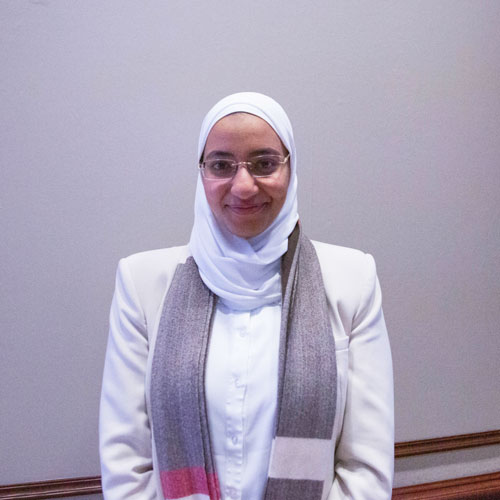
Salma Emara (ECE) — Early Career Teaching Award
Recognizing an early career educator who has demonstrated exceptional classroom instruction and teaching methods.
Emara joined ECE two years ago as an assistant professor, teaching stream. Since then, she has made an indelible mark on the department’s teaching culture, shaping how ECE delivers its core programming courses and ensuring that students develop critical skills for their future careers.
Emara teaches two core undergraduate courses: APS105: Computer Fundamentals, a first-year programming course, and ECE244: Programming Fundamentals, expanding on APS105. Emara has revitalized these courses in important ways, aligning with the department’s emphasis on experiential and project-based learning. She has developed open-source online textbooks for each of these courses, and student feedback frequently cites the clarity of these materials as key to their success.
As students often struggle to see the relevance of programming to other engineering subjects, Emara redesigned the labs in APS105 and ECE244 to focus on real-world problems. She has also enhanced debugging instruction through short videos and live demonstrations and collaborated with her design team to develop a virtual teaching assistant that provides instant course support. Emara has already received two departmental teaching awards, as well as consistently high teaching evaluations.
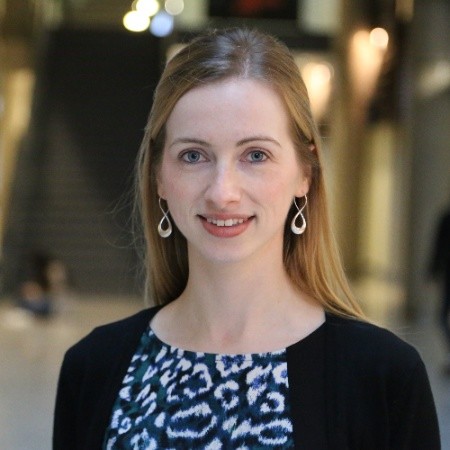
Jennifer Farmer (ChemE) — Faculty Teaching Award
Recognizing a faculty member who demonstrates outstanding classroom instruction and develops innovative teaching methods.
Farmer is an associate professor, teaching stream and the inaugural associate chair, undergraduate student experience in ChemE. Farmer’s leadership in ChemE’s curriculum modernization project has led to the development of innovative pedagogy and upgraded infrastructure, as well as better integration between courses and between years.
Most notably, she completely redesigned ChemE’s two second-year lab courses to include new chemistry content and engineering concepts, and to create better linkages between the two. Farmer created innovative labs that allow students to bring together knowledge and perspectives from different courses to analyze and develop lab-based approaches to real-world problems through project-based learning.
Her commitment to students goes far beyond the classroom — she serves as a faculty liaison for several student clubs and joins in many extracurricular student-organized events. Farmer’s pedagogical innovations have led to conference presentations and papers in peer-reviewed journals. Her outstanding teaching earned her ChemE’s Diran Basmadjian Teacher of the Year Award for Small Classes in 2018 and 2023 and the Wighton Fellowship, a national award for excellence in laboratory teaching, in 2024.
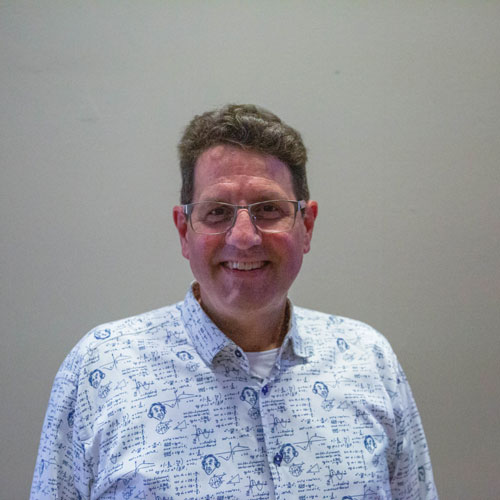
Robert Irish (ISTEP) — Sustained Excellence in Teaching Award
Recognizing a faculty member who has demonstrated excellence in teaching over the course of at least 15 years.
Over his 30-year career at U of T, Irish has made significant contributions to the development of the transdisciplinary competency curriculum in the faculty, particularly in the critical area of engineering communication.
Irish was hired in 1995 to pioneer a program to integrate communication skills into existing engineering courses. Under his leadership, this program developed into the Engineering Communication Program, which now delivers communication instruction across the faculty. Irish also spearheaded the development of new courses that integrated engineering subjects and communication, most notably Engineering Strategies and Practice and Praxis. Such integration of communication across the curriculum has completely reshaped engineering education at U of T.
More recently, his teaching has expanded to include engineering ethics and social impacts of technology. Irish has also contributed beyond U of T as the author/co-author of two widely used books on engineering communication. In 2019, he was awarded the IEEE Professional Communication Society’s Ronald S. Blicq Award for Distinction in Technical Communication Education, recognizing how his work helped take the practice of integrated communication instruction in engineering mainstream.
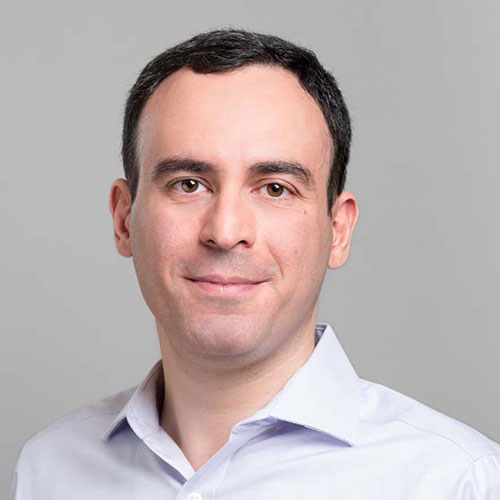
Ali Hooshyar (ECE) — Safwat Zaky Research Leader Award
Recognizing leadership in innovative interdisciplinary and multiple-investigator initiatives that has enhanced the faculty’s research profile.
As Canada Research Chair in Electric Power Systems, Hooshyar is working to improve the reliability and stability of electrical infrastructure. Hooshyar’s research and leadership have had a transformative impact on the power engineering community at U of T, across Canada, and internationally. He has demonstrated exceptional leadership in interdisciplinary initiatives, collaborations with industry, and major research programs that have significantly enhanced the research profile of the faculty.
Hooshyar played a key role in the establishment of the Grid Modernization Centre (GMC), a cutting-edge facility that brings together researchers from across the University with the goal of decarbonizing power grids and integrating renewable energy sources. Under Hooshyar’s leadership, the GMC has become a hub for collaborative multidisciplinary research, industry partnerships and policy engagement.
Hooshyar has also been instrumental in leading multiple investigator research initiatives that address critical challenges in modern power grids. He recently led a $2M initiative creating a coalition of key utilities — including Hydro One, Toronto Hydro, Hydro Ottawa and Alectra — to develop next-generation grid codes for power distribution networks in Ontario.
Six companies founded or co-founded by University of Toronto luminaries have been named among the World’s Top GreenTech Companies of 2025 by TIME magazine.
The ranking, compiled by Time in partnership with data firm Statista, is based on analysis of the impact, financial strength and innovation of more than 8,000 companies that are helping reverse the impact of human activities on the planet. The 250 companies that placed in the ranking hail from more than 30 countries.
Four of the companies with U of T-affiliated founders placed in the top 100 — headed by AI self-driving trucking startup Waabi, which was ranked in the top 10.
The companies in the list that were founded or co-founded by members of the U of T community are:
- Waabi (9th) — founded by Raquel Urtasun, professor in the department of computer science in the Faculty of Arts & Science, co-founder of the Vector Institute for Artificial Intelligence
- Skeleton Technologies (30th) — co-founded by Anti Perkson (ChemE MASc 9T3), from the Faculty of Applied Science & Engineering
- Boston Metal (65th) — co-founded by Donald Sadoway (EngSci 7T2, MIE MASc 7T3, MSE PhD 7T7, Hon LLD 1T3), from the Faculty of Applied Science & Engineering
- Li-Cycle (71st) — co-founded by Ajay Kochhar (ChemE 1T3), from the Faculty of Applied Science & Engineering
- eLeapPower (211th) — founded by Tony Han (EngSci 1T3, ECE MASc 1T6), from the Faculty of Applied Science & Engineering
- Novoloop (250th) — co-founded by Jeanny Yao, honours bachelor of science from U of T Scarborough
Read the TIME magazine article
Catch insights from Ajay Kochhar on an earlier podcast episode of Coffee with Chris Yip.
